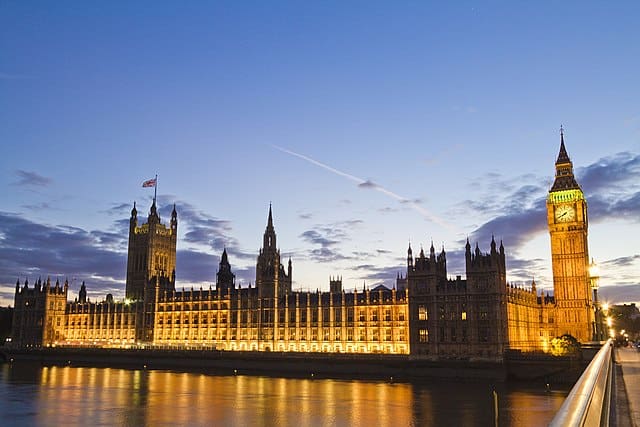“It’s the economy, stupid”. There is now an almost unanimous consensus that the next government, in less than 12 months from now, will inherit a daunting economic legacy.
The stark contrast with the inheritance Blair received from Major in 1997 is instructive.
Writing at the end of January, Paul Johnson of the Institute for Fiscal Studies concluded that the next Parliament will have the ”most uncomfortable combination of low growth and high debt interest spending of any since 1951”, necessitating a ”nasty combination of high tax/tightening spending.”
It follows that the new (or renewed) Parliament and government will face huge financial challenges, and inevitable public disenchantment. And if the currently anticipated Starmer administration has come to power that dislocation could very easily – with the wild electoral distortions of First-Past-The-Post – lead to a violent swing to the right in terms of seats changing hands in 2028/29. Another one-term government? Braverman or Farage PM ?
At the moment political reform may seem of very limited salience compared with the cost of living, the NHS crisis, climate change or the Brexit deal fallout. However, if the next Parliament and government does not address vital weakness early on it may never get the chance to solve longer term problems.
For example, recent changes in electoral law ease the path for millionaires and shadowy foreign entities to make political donations and for a political party to flood target constituencies with unregulated cash. Meanwhile, eligible electors, who are less likely supporters of the current government party, are discouraged by the intricacies of registration and photo ID at the polling station. As many as 8 million potential voters are unregistered but more millionaires are enabled to have a political impact.
Automatic electoral registration with the allocation of NIC could solve the former while effective donation limits and greater transparency would hugely mitigate the latter.
Public disenchantment, already serious, will reach even worse levels and consequent distortion of electoral outcomes will be democratically disastrous. Differential turnout can already produce dire results but if the overall figure drops down around 50 percent, there would be a widespread perception, at home and abroad, that our representative system had lost its integrity and credibility.
Various short-term direct democracy initiatives could help to stem the tide: for example, citizens assemblies have proved productive, here and elsewhere in comparable countries.
Eventually, however, all parties will have to recognise that the current electoral system is not fit for purpose, and has been left behind by the changes of the UK’s demography: in brief, the public have moved on from the duopoly of the 1950-1970 period, and the system has yet to catch up. While so many people feel disenfranchised by it the deficit is all too obvious.
If there is to be a Starmer government, they will deny their party members, supporters and the trade unions their choice of a more representative democracy at their own peril.
The case for electoral reform is being pursued very effectively cross-party by others, and we are happy to leave it to them. In our recently published book Can Parliament Take Back Control? we concentrate instead on other ways in which the current insidious slide towards “elective dictatorship” can be reversed.
We invite any who share our concerns to examine, discuss and challenge its analysis and recommendations.






